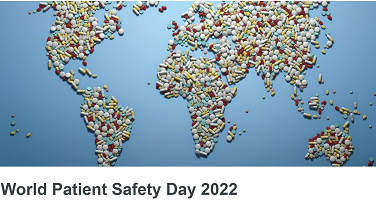
World Patient Safety Day, September 17 2022, is one of the World Health Organization's global public health days, aiming to raise awareness and understading of health issues and mobilise support for action
WHEN something goes wrong in healthcare the temptation is to find someone to blame – when that someone may be a doctor or nurse doing their best in overstretched or poorly-designed working conditions.
I recently dealt with a case where a patient underwent the wrong diagnostic procedure – a consent form for another patient had found its way into the medical records. The consultant was ‘suspended’ while an investigation was undertaken (but reinstated soon after). I couldn’t quite fathom how this was allowed to happen, with all the processes in place, such as pre-theatre checklists and apparent safety nets – and it certainly didn’t seem fair to single out the individual doctor for multiple process failures.
I champion a ‘systems approach’ to investigating clinical incidents, which looks at all the factors that contribute to poor care, not just those related to human actions and behaviours. Moving private healthcare towards a culture of shared learning, not blame, is one of the things the medical teams at AXA Health are passionate about.



